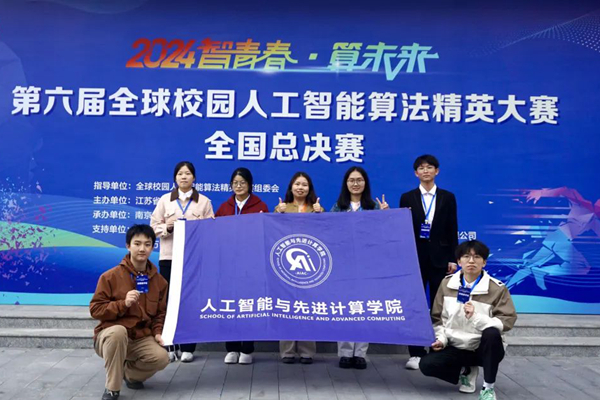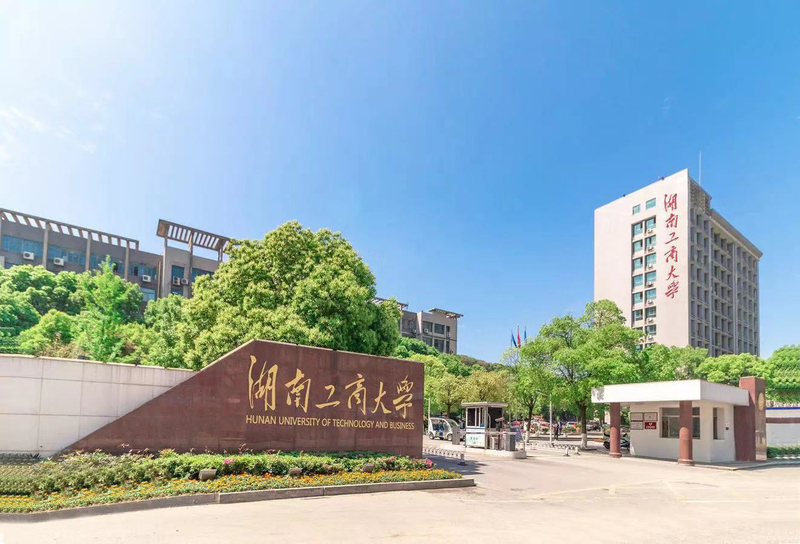HUTB Achieves Outstanding Results in 6th Global Campus Artificial Intelligence Algorithm Elite Competition
2024-11-19
Recently, the national finals of the 6th Global Campus Artificial Intelligence Algorithm Elite Competition were held in Nanjing. After selection through the university competition and regional qualifying rounds, a total of nine teams from HUTB advanced to the national finals of the Algorithm Challenge. Following intense algorithm design ranking and on-site presentations, our teams ultimately won 3 first prizes, 3 second prizes, and 1 third prize at the national level. The Global Campus Artificial Intelligence Algorithm Elite Competition has been held annually since 2019, with five editions to date. It has attracted participants from over 1,000 universities across 26 countries and regions, with a total of 14,700 teams having competed. The competition has garnered widespread attention from AI enthusiasts on campuses worldwide and from the industry. In March 2023, the competition was for the first time included in the national general university discipline competition ranking list published by the China Association of Higher Education, officially becoming a national-level discipline competition.

This challenge adopts an algorithm design ranking system, where students submit their AI models to the organizing committee for evaluation, and the committee releases the ranking in real time. HUTB's teams competed alongside “Double First-class” universities such as Tsinghua University, Huazhong University of Science and Technology, and Harbin Institute of Technology. The teams that won the national first prize ranked among the top on the algorithm ranking list. This award marks a significant breakthrough for HUTB in the field of artificial intelligence algorithms. All the teams that won the national first prize are from the Xiangjiang Academy - Hong Class, highlighting the outstanding results of HUTB's efforts in nurturing top innovative talents.
In recent years, HUTB has aligned itself with the strategic priorities of the country under the visionary leadership of the CPC HUTB Committee. By leveraging the National Center for Basic Science project, Xiangjiang Laboratory and other high-caliber scientific and technological innovation platforms, we have been vigorously developing new engineering programs. Also, we have been experimenting with talent development modes featuring "Digital Intelligence + (Artificial Intelligence +)" "Green+" and "Culture + Technology". By implementing programs such as the "Xiangjiang Academy - Hong Class", the "Academician Elite program", and the "Major + Micro-Major" programs, we focus on the field of artificial intelligence algorithms. We integrate cutting-edge technologies and research projects into our talent development system and explore a "project-based practical + competition integration" teaching model. This approach has significantly fostered interdisciplinary and innovative talents, yielding notable results.
Since July of this year, HUTB has organized over 150 students from AI-related majors and integrated the competition content into the course design of "Machine Learning and Deep Learning." Through the "course + competition integration" model, we conducted internal selection through intense ranking on the leaderboard, and ultimately selected the top three teams from each task to participate in intensive training. During the three-month intensive training, the guiding teachers and student teams worked closely together, spending long hours in the lab on algorithm design, model debugging, and iterative optimization. During the regional qualifying rounds and the national finals, both teachers and students often engaged in discussions and research until the early hours of the morning. Hard work pays off. After continuous efforts, the teachers and students achieved the national first prize in three sub-tasks: "Steel Surface Defect Detection and Segmentation," "AI-generated Facial Image Discrimination," and "BIRADS Classification and Feature Recognition of Ultrasound Breast Images."
(Reported by School of Artificial Intelligence and Advanced Computing)









